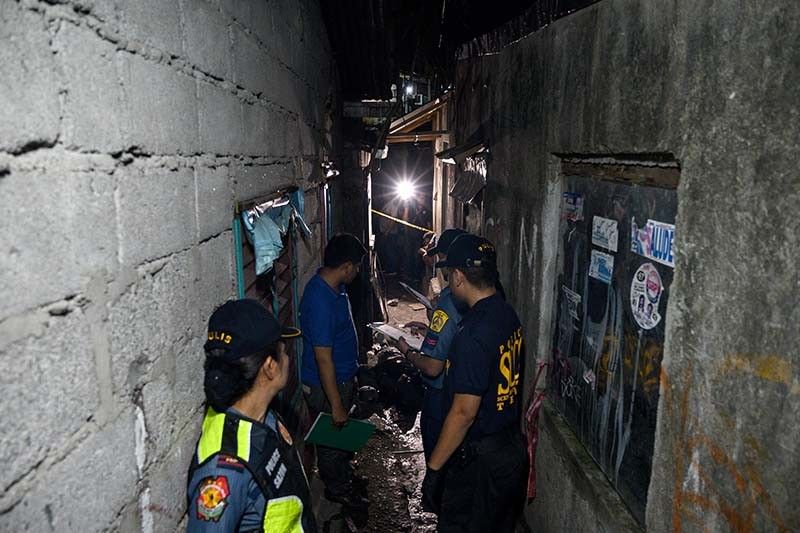Palace questions 'maliciously partisan' UN rights council resolution

MANILA, Philippines — The Philippine government questioned the validity of the resolution seeking a “comprehensive” international report on the human rights situation in the Philippines, saying the text failed to get a simple majority of the 47 member states.
The United Nations Human Rights Council on Thursday narrowly approved the resolution tabled by Iceland—18 voted in favor and 14 voted against. A total of 15 other nations abstained from voting.
“We question the propriety of the resolution as well as its validity. The subject resolution not only was not unanimously adopted, but it didn’t even get a simple majority of the 47 countries. The voting is not decisive in its favor,” presidential spokesperson Salvador Panelo said.
“This means that majority of the members are not really convinced of the resolution calling for the investigation of the so-called extrajudicial killings in our country,” he said.
The two-page resolution, however, is not seeking an inquiry into the human rights situation in the country but a report—a compromise made to win a majority, activists said.
'There will be consequences'
Foreign Affairs Secretary Teodoro Locsin Jr. said the resolution does not represent the will of the council, “much less that of the developing countries who are always the target of such resolutions.”
“Western countries pushed for this resolution in the confidence that the world has forgotten what they did and what should have been done to them had there been a Human Rights Council. It was pushed with the arrogance that developing countries must not stand up to them even if we can and as we hereby do,” Locsin said, warning “there will be consequences.”
The resolution was backed mostly by European nations: Austria, Croatia, Czech Republic, Denmark, Iceland, Italy, Slovakia, Spain, Ukraine and United Kingdom.
“The resolution is grotesquely one-sided, outrageously narrow and maliciously partisan. It reeks of nauseating politics completely devoid of respect for the sovereignty of our country, even as it is bereft of the gruesome realities of the drug menace in the country,” Panelo said.
Government cooperation
Aside from requiring a report, the resolution also calls on the Philippine government to prevent extrajudicial killings and enforced disappearances, carry out impartial investigations and hold perpetuators accountable.
It also urges Manila to allow country visits and prevent acts of intimidation or retaliation against UN agencies.
President Rodrigo Duterte on Thursday said he will review the intent of the “investigation” of UN representatives before permitting them to proceed.
“Let them state their purpose and I will,” he said, without ending his statement.
Panelo said should it proceed impartially, the move “will only lead to the humiliation of the investigators, as well as of Iceland and the 17 other nations supporting it, since there never have been—nor will there ever be—state-sponsored killings in this part of the world.”
“The Duterte presidency is not cowed or weakened by such resolution,” he added.
The drug war, Duterte’s signature initiative launched in 2016, has killed at least 27,000 people, according to human rights watchdogs. But figures from the government only put the number of ‘drug personalities’ killed in law enforcement operations at 6,600.
The government has maintained that all "drug personalities" killed had forced law enforcement to shoot them by violently resisting arrest.
‘Show government has nothing to hide’
The Commission on Human Rights should show that it is willing and able to hold perpetrators to account, to protect human rights defenders and to stop killings.
“Rather than maintaining acrimony and the hurling of threats of possible consequences, to show that it has nothing to hide & is willing to adhere to the global standards expected of a member of the UN Human Rights Council - the Philippine Government must open spaces for dialogue with other nations that have expressed their concerns about the human rights situation in the country to show resolve that we can most certainly improve,” CHR said.
CHR said it is ready to assist UN personnel in this endeavor.
Human rights organization said the adoption of the resolution is crucial for holding the Philippine government accountable for drug war killings and other abuses.
“It signals the start of accountability for thousands of ‘drug war’-related killings and other abuses, and will provide hope to countless survivors and families of victims,” Laila Matar, deputy Geneva director at Human Rights Watch.
“This resolution will initiate the start of a close monitoring on the rights situation in the country. Other efforts domestically, regionally and internationally will likewise move forward, the aggregate of which will expectedly bring out the changes in policy and in leadership that prioritizes human and people’s rights,” human rights watchdog Karapatan said.
- Latest
- Trending
































